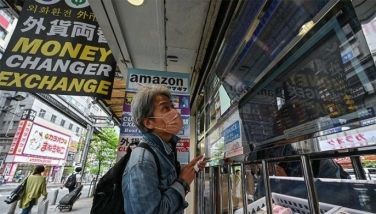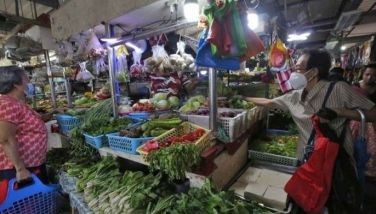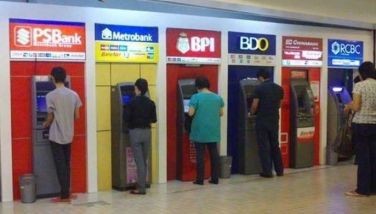'Social welfare aftermath: Labor wins' (Part VII) - The Enrile- Belmonte constitutional initiative

In a previous analysis of potential outcome from the initiative to amend the restrictive provisions of the Philippine Constitution, it is asserted that economic gains will be made, that the nation wins. (see “Economic aftermath: The nation wins,” July 6, 2011, archives of this column).
As economic gains are made, the social benefits show their impression on the quality of life of most people brought under the arc of the larger domestic economic progress. Rising employment and higher productivity make possible the conquest of poverty. Along with that are other felicitous outcomes: higher income, improved nutrition, better health and education, increasing leisure, and general well-being of the working man. Some of these will be evident in the short run but most of them will happen in the long run.
“The short run and the long run.” In the context of such impact of the amendment of restrictive economic provisions, the short run period is a span of one year or two in which observable major changes are seen in response to the policy change. During this period, the total economic capacity of the economy essentially is not yet affected. In the long run period, the impact of the policy change becomes evident in the expansion of the nation’s economic capacity.
The famous economist, John Maynard Keynes, once joked, “In the long run, we are all dead.” Why then should we care? Because the long run we talk about is visible and achievable within a fraction of our lifetime. The period of accelerated growth of many of our neighbors happened within the span of one decade or two. At that point, the hopeful signs to most of their citizens became noticeable.
We often say as parents that we live and work hard so that our children can enjoy a better future. In nation-building, the same is true! One generation sacrifices so that the next generation seizes the fruits of what the former forgoes.
In terms of the problem that we are discussing, one generation removes obstacles that are palpably clear so that the next generation can have a better break and not be hampered by them. This is the important message that amending the constitutional restrictions to economic activity would bring to us.
“A lesson of history we should learn.” It took a long, long time for many in our country, including the nation’s key policy makers, to realize what ails our economic underperformance is, in large part, due to the heavy restrictions that have been placed on capital – a major factor of production – in our political constitution. The evidence is that we have been left behind by our neighbors in channeling outside resources to life our economy. It is easier to be enthralled by voodoo and other weaker explanations of why this happened.
Even today, based on the resistance that we hear about the subject of these constitutional restrictions, there are alternative explanations being offered that many hold for our national economic underperformance. We were mesmerized for decades by the idea that economic nationalism meant restrictive policies on foreigners and favors to ourselves rather than as a robust expression of national capabilities within a competitive world.
“From economic to social gains.” Let us recapitulate the main economic gains. An additional two to three percentage points is added to the historic three-to four-percent economic growth rate that the country has been achieving. This makes possible yearly economic growth rates of output of least six to seven percent or more per year and puts it at par with Asian high growth neighbors.
The resulting gain in productive economic capacity is sizable. Employment creation takes place at a higher level of income for wage earners. Growth in employment stimulates a rise of average incomes at home. The domestic market base expands even as the export capacity moves upward to other international markets. A permanent decline of the unemployment rate happens. The formal economy of the country gets bigger at the expense of the amorphous informal economy which is where most people operate in times of low levels of economic achievements.
“Psychological lift in competitive rankings makes poverty reduction more feasible.” A major psychological gain will arise as foreign investors improve their perception of the country in welcoming foreign investment. The country’s position in the various indexes of competitiveness rankings among countries will get better. The international rankings of India and Indonesia in such indexes have moved up lately in part because of changed foreign investor perceptions about their economic prospects. This will also happen to us.
Within such a framework of rising optimism, the inflows of foreign direct investments will happen and poverty reduction becomes more feasible.
“Employment, productivity and income change.” When workers find steady employment at home, any economic insecurity that they might have is reduced. This extends to family and then to the community at large. With employment, rising purchasing power also becomes possible and this leads to rising consumption. The result could be a rise in family welfare – gains in housing, in nutrition and health, in educational prospects, and in more leisure, even greater social investments in sports and physical wellbeing through an improvement of schools and parks. All these contribute to the making of a healthy nation.
Another important outcome is the generation of saving at the household and community level. That saving becomes investible funds for further growth. Even government revenues increase since the tax base will have become bigger too. In fact, rising incomes almost always means a rise in saving.
Even if voluntary saving does not increase as a result of high consumption needs, there are in existence automatic economic features for forced saving within the Philippine economy: social security contributions of workers and government employees, housing schemes collected through Pag-IBIG, private employee provident funds and insurance schemes among larger corporations. All these schemes operate as a percentage contribution from the income base of the earners of incomes.
Finally, as the domestic employment situation improves, there are potential jobs at home for OFWs when they come back and reintegrate back within our economy. This reverse flow instead of becoming a burden under present circumstances provides further strength to the economy.
My email is: [email protected]. Visit this site for more information, feedback and commentary: http://econ.upd.edu.ph/gpsicat/
- Latest
- Trending
































